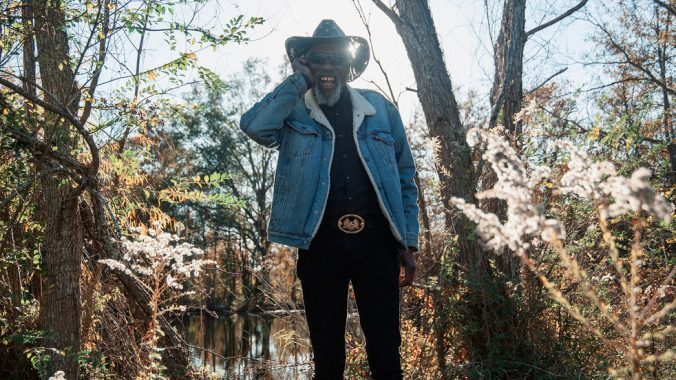Robert Finley is Just Getting Started

Bluesman Robert Finley has lived in Louisiana for a long time. At 69 years old, his identity is fundamentally intertwined with its rich soil and complex history: the church spires dotting its small towns with such comforting regularity that it seems they’ve been there forever; the pelicans and alligators which flit and splash around endless, marshy creeks. It’s one of the U.S.’s Blackest states, and one of its most impoverished. It also holds forth a rich musical tapestry of cajun, Afro-Caribbean, jazz and blues rhythms.
Finley has spent his life in the state’s far north, where the swamps relinquish to pine-covered hills and Baptist churches, as bluegrass and gospel song thrum under a vast, hot sky. He was born in Winnsboro but grew up in Bernice, a miniscule lumber town about twice as old as he is. There, he would sit in front of the village church and watch the worship players, in awe of the sounds they could produce. He remembers being sent out to buy a pair of shoes at age 10 and returning with his first acoustic guitar, learning to play with friends in the tiny morsels of free time he could spare. In no short terms, Finley’s journey thus far has been nothing short of mythical.
After getting connected with Black Keys frontman Dan Auerbach in 2017, Finley joined him on the Easy Eye Sound Revue tour the next year—opening for Auerbach and Shannon and the Clams. On his breakout 2021 album Sharecropper’s Son, Finley croons heartily about his upbringing, detailing afternoons spent under a burning sun, the missed school and aching joints wrought on him and his siblings as their father struggled to support them. Over the phone, he recalls to me in a gravelly lilt that the work used to feel like a game, a race to fill a flour sack his dad attached to a string with tufts of cotton. As he turned toward teendom, he lost the juvenile ignorance which had enabled him to find joy in this oppression. He and his siblings were made to compete for time off and favoritism; his brother used to call them “the last of the modern-day slaves.”
Finley escaped abroad by joining the U.S. Army and serving as a helicopter technician in the early-1970s, before returning to Bernice as a carpenter. Deemed legally blind from glaucoma at 60, he held his “pity party,” re-learned how to operate and hunkered down in the comfort of music-making. He could still play guitar and he had more time to sing now that he’d been forced, without warning, into retirement.
He recounts all of this to me in a tone that sounds semi-automatic, though perfectly engaged. It’s clear that he is happy to tell the story of his life, and it’s just as clear that he’s been made to do so dozens of times in his last few years of widespread, newfound success. He’s kind and patient as he makes his way through a history of his success which I must imagine is draining to recount in every interview, but I’m not sure it’s what he wants to talk with me about.
-

-

-

-

-

-

-

-

-

-

-

-

-

-

-

-

-

-

-

-

-

-

-

-

-

-

-

-

-

-

-

-

-

-

-

-

-

-

-

-








































